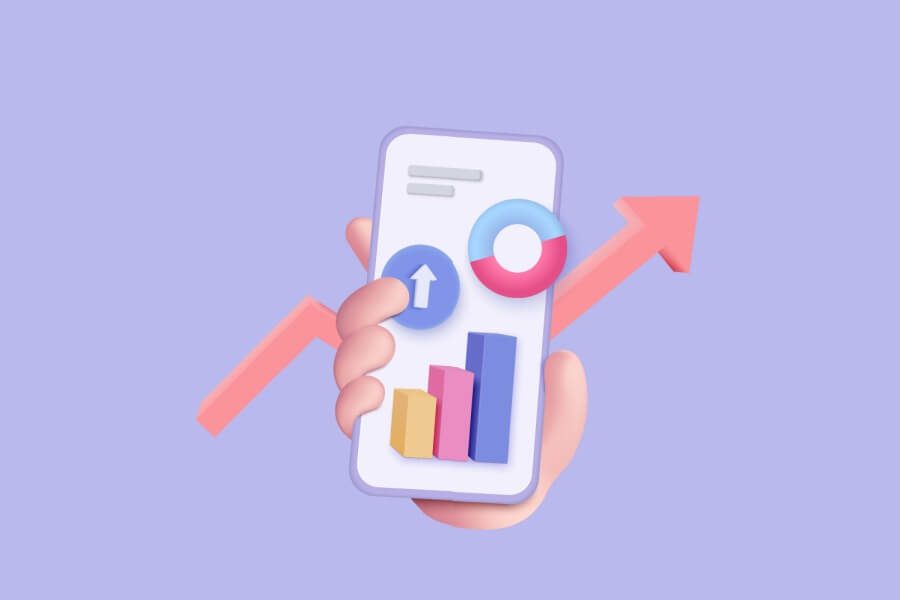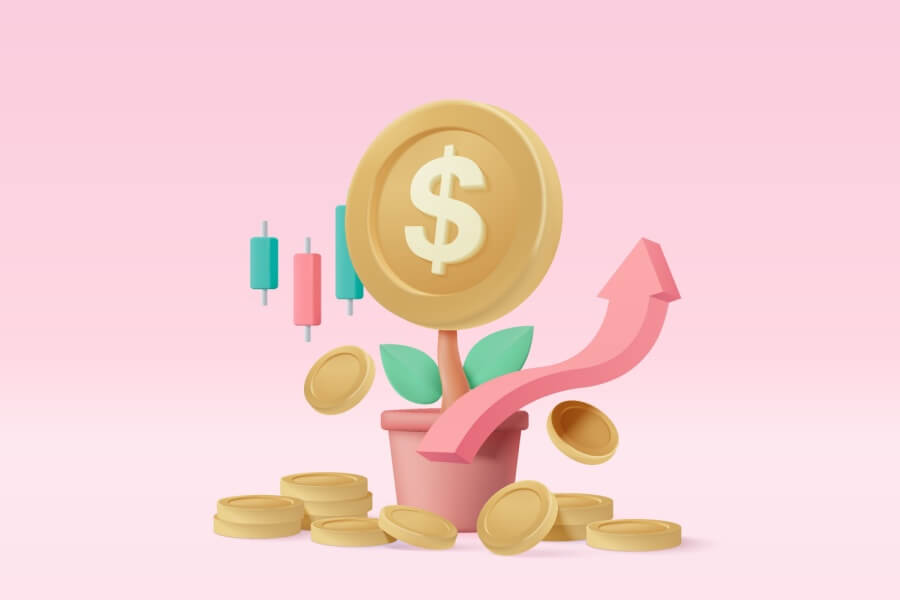Do you have a low credit score? Are you worried about facing loan rejection? Do you want to learn how to save money on loans? We discuss the key points to consider when you are looking for a loan with bad credit.
Learn how to budget for a loan, understand what lenders look for when evaluating a loan application, and discover the tips and tricks of how to get low credit score loan approval in Australia below.
What is a low credit score loan?
As the name suggests, a low credit score loan (also known as a bad credit loan) is designed for individuals with less-than-ideal credit histories. Traditional lenders often hesitate to extend credit to individuals with low credit scores due to the perceived risk of default.
However, low credit score loans overlook this perceived risk and instead focus more on a client’s ability to pay. Therefore, income and expenses play the largest factor when determining whether to approve or reject an application.
Bad credit loans may come with higher interest rates and stricter terms compared to conventional loans, reflecting the increased risk for the lender.
One thing to note when considering how to get low credit score loan approval is that the interest rates are typically higher than a standard loan. Despite this, they can provide a lifeline for individuals in need of financial assistance, allowing them to access funds for various purposes, such as consolidating debt, covering unexpected expenses, or making essential purchases.
Why do I have a low credit score?
Understanding why your credit score is low is crucial for improving it. Several factors can contribute to a low credit score, including missed payments, high credit card balances, or a limited credit history.
Furthermore, listings such as defaults, court judgements, bankruptcy, or foreclosure can cause extreme damage to your credit score. In some cases, a black mark can remain on your file for years.
If you need money fast and have a bad credit score, concentrating on how to get low credit score loan approval is a good idea that won’t involve your past being judged.

How can I improve my credit score?
Improving your credit score demands effort and strategy. Begin by reviewing your credit report for errors and dispute any discrepancies with the credit bureaus. This can be tedious and tricky, but a credit repair company can do all of this on your behalf.
Prioritise paying off any unpaid debts and ensure that bills and debts are paid in a timely manner moving forward. Payment history significantly impacts your score.
A credit score can also increase by lowering credit card balances and diversifying your credit mix by responsibly managing various types of credit accounts, including credit cards, personal loans, and mortgages.
5 Top tips when applying for loans
1. What lenders look for when assessing a loan application and how to get low credit score loan approval
Credit Score:
- Traditional lenders consider your credit score, a number ranging between 0 to 1200 or 0 to 1000, depending on the credit reporting agency.
- A higher credit score indicates lower risk, while a lower one suggests higher risk.
- Australian Lending Centre does not check your credit score when assessing your loan application.
Income and Employment History:
- Virtually all lenders evaluate your income and employment history to ensure a stable source of repayment.
- Documentation like payslips, tax returns, or bank statements may be requested for verification.
- Australian Lending Centre only requires online bank statements to make a decision.
Outgoings:
- Lenders assess your debt-to-income ratio (DTI) by dividing your total debt amount by gross (pre-tax) monthly income. For example, if your total debts (including the proposed new debt) total $200,000, and your total monthly income before tax is $65,000, then your DTI would be 3. A score of 3 or less is considered low, making approval chances higher.
- Lenders also examine your other average monthly expenses (groceries, entertainment, rent, car insurance) to determine how much you have left over to put towards new loan repayments.
- Lower outgoings relative to income increase approval chances.
Payment History:
- Your track record of timely payments on debts is crucial for many lenders.
- Missed or late payments can raise concerns and impact creditworthiness negatively.
- From bank statements alone, lenders can get a good idea of how many times you’ve dishonoured in the past few months.
Other Factors Considered:
- Lenders also weigh factors like assets, existing debts, and loan purposes.
- Evaluation means that informed decisions can be made on loan approval and terms.
2. What to do after facing loan rejection
Although loan rejection can be disheartening, it’s crucial not to lose hope. Instead, view it as an opportunity to reassess your financial situation and put your energy into alternative solutions, including how to get low credit score loan approval.
It’s always a good idea to review the reasons for rejection provided by the lender to address any weaknesses. You could also seek feedback or guidance from a financial advisor if necessary.
Strengthen your credit profile by paying down debts, improving your credit score, or providing additional documentation.

3. How to budget for a loan
Assessing your financial situation before applying for a loan is crucial to determining a comfortable borrowing limit. The best way to do this is by creating a budget that clearly lists your income, expenses, and existing debt obligations:
- Income: List all income sources, including wages and bonuses.
- Expenses: Identify fixed expenses (expenses that remain the same each month) like rent, phone plan and insurance. Next, factor in variable expenses (expenses that change each month) such as dining out, groceries and entertainment.
- Debts: Figure out how much money you spend on debt repayments each month.
From this, you will have a remainder amount which will be a surplus or a deficit:
Surplus: You’re left with a positive number after taking expenses and debts away from your income. The greater this number, the more you will likely be able to borrow.
Deficit: If you are left with a negative number after running your budget, it’s incredibly unlikely that you’ll be approved for a loan. If you are unable to afford your current debt repayments, taking out another loan risks falling into a debt cycle. Rather than taking out a new loan, you should consider Debt Consolidation or Debt Relief.
Lastly, use a loan calculator to estimate monthly payments based on loan amounts, interest rates, and terms. This helps you find a suitable loan amount and repayment term aligned with your budget and financial objectives.
4. Ways to save money on loans
While low credit score loans may entail higher interest rates and fees than those with good credit scores, there are ways to cut costs and reduce borrowing expenses.
Shop around:
- Start by comparing loan offers from different lenders. Each may offer varying interest rates, terms, and fees, so exploring your options for the best deal is crucial.
- Online comparison sites can be good for this but beware of biases between comparison websites and listed lenders.
- Remember to specifically seek out lenders who communicate well and are transparent about fees and interest rates. Also, be sure to check for reviews.
Boost your credit score first:
- Loans with no credit check will always come with slightly higher rates than standard personal loans, so always focus on improving your credit score before anything else.
- The greater your credit score, the greater your leverage.
- Small improvements can qualify you for better terms and lower rates, ultimately saving money over the loan’s duration.
Choose shorter loan terms:
- Although longer terms offer lower monthly payments, they often mean higher interest rates and more interest paid overall.
- Whatever the loan type, whether it’s a bad credit loan or a mortgage, a shorter term lets you pay off the loan sooner and save on interest.
Be cautious of add-on products or services:
- Some lenders offer “extras” such as credit insurance or extended warranties.
- While they might seem attractive, they can unnecessarily increase your loan costs, increasing the overall expense of borrowing.
Consider how much you actually need to borrow:
- The more you borrow, the longer the loan repayment duration will be.
- The longer the arrangement, the greater the overall accrued interest and the greater the chance of falling behind on repayments.
Always pay on time:
- This one is non-negotiable and we cannot stress the importance enough.
- Do not apply for the loan if you are not 100% confident that you will be able to make timely repayments.
- Missed repayments damage your credit score, appear as a dishonour on your payment history and often incur a late payment fee, adding to the overall cost of your loan.
Avoid minimum repayments on credit cards:
- Paying off the minimum monthly balance on credit cards has several drawbacks.
- These include high interest accumulation, prolonged debt duration, negative impact on credit score, and prolonged financial stress.
- To mitigate these risks, it’s crucial to pay more than the minimum each month or clear the balance entirely.

5. How to get low credit score loan approval that’s right for for me
When researching how to get low credit score loan approval, it’s important to carefully consider your financial needs, goals, and current credit situation. Always start by assessing your borrowing needs and determining how much you need to borrow and for what purpose.
If you would like to apply for a low credit score loan with Australian Lending Centre then you can apply in less than 5 minutes here. Applying is no obligation and does not affect your credit score.
Some final considerations when taking out a loan:
- When selecting a loan amount, leave some extra breathing room to accommodate emergencies and extra spending and avoid taking out additional loans.
- Make sure you have a clear plan for using the loan and that you can manage the repayments to avoid any serious trouble down the track.





